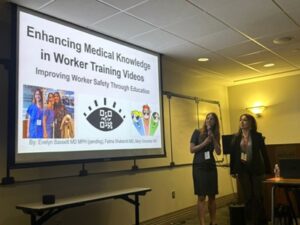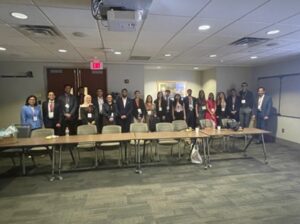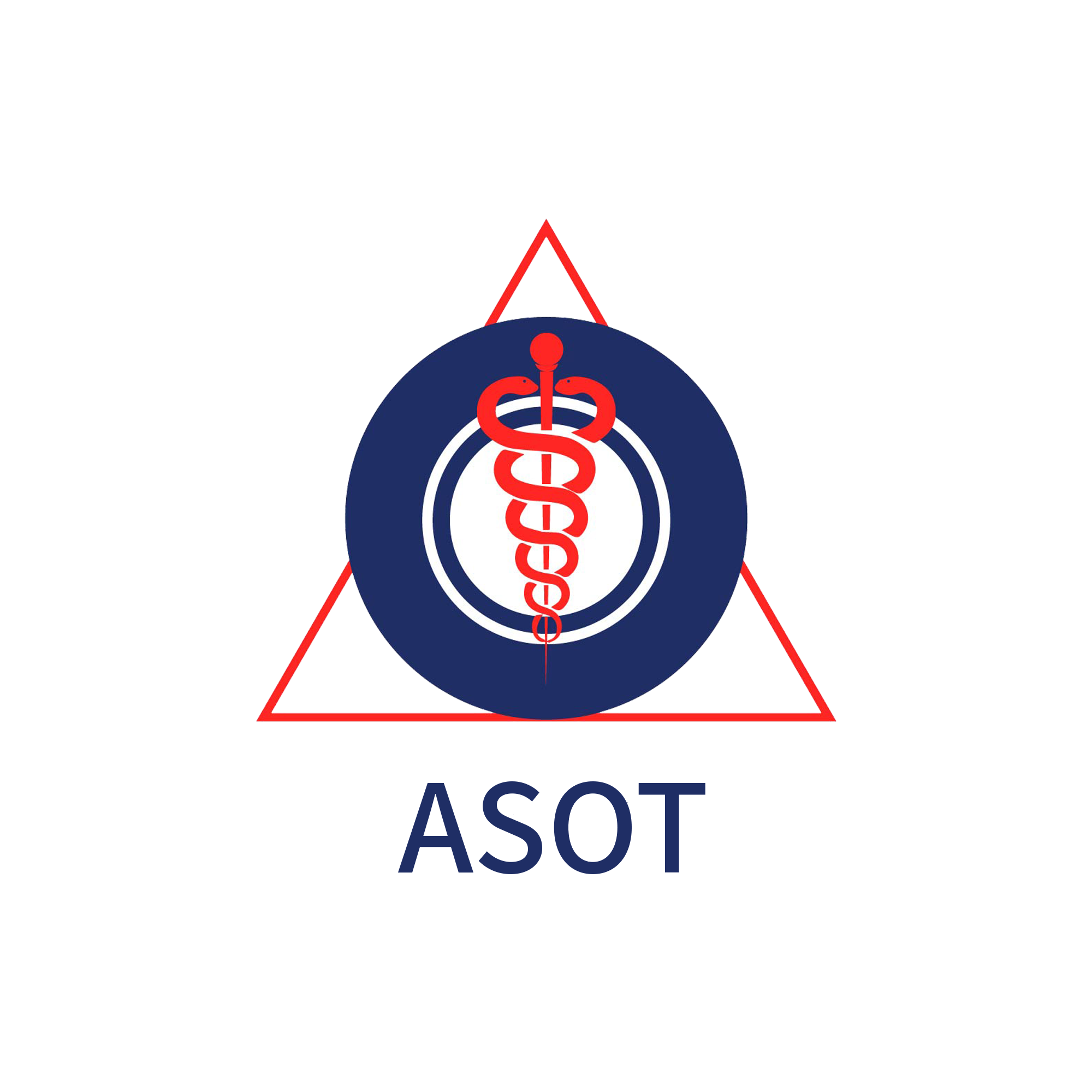

A Shark Tank Spin on an Ophthalmology Conference
Fatma Shakarchi MD MSc, Evelyn Bassett MD, Mary González Suriel MDasotadmin
“Hi Sharks, today we’re pitching protective eyeglasses…”
We are: Fatma, an international resident and global health practitioner working with the United Nations, Evelyn, an international doctor currently pursuing an MPH, and Mary, an ophthalmologist and the lead of comprehensive ophthalmology at APEC, in Mexico City.
We attended the American Society of Ophthalmic Trauma (ASOT) Annual Meeting in Houston. The conference dives deep into the challenges and solutions surrounding ocular trauma, but what sets it apart is how it brings together clinical care, policy, legal considerations, and public health in one space.
We had presented at ASOT last year and learned so much that we were excited to participate again. This year, ASOT added something unexpected and truly exciting: a Hackathon. The concept was simple but ambitious. Small teams were asked to deliver a “TEDx-style” pitch tackling a problem in ocular trauma. Each team had 2–3 members, randomly assigned by the planning committee, and we would compete for a $500 grant.
The ASOT Advocacy in Action Hackathon:
Teams were judged using a rubric that emphasized:
- Problem Identification: Was the issue clear, meaningful, and specific?
- Innovation & Actionability: Is the solution creative, novel, and practical?
- Use of Data & Storytelling: Did the pitch use compelling stories or data?
- Implementation & Measurability: Was there a feasible rollout plan with measurable outcomes?
- Presentation & Delivery: Was it polished, clear, and within 4 minutes?
We could use audiovisual aids and were encouraged to bring our own flair to the presentation. It really felt like Shark Tank collided with an ophthalmology conference—in the best way.
We went into the Hackathon with no specific expectations. Some of us had participated in hackathons and even planned them with Startup Weekends and the UN Development Programme. This experience truly exceeded our expectations. It was energizing, memorable, and full of learning.
Our first team call spanned different time zones worldwide: Mary was in India presenting at a conference, Evelyn was in Miami preparing to travel to ASOT in Houston, and Fatma was boarding a flight from Geneva to London. Despite being in three different time zones, we brainstormed everything from sports- and agriculture-related eye injuries to access issues and prevention strategies. Eventually, we landed on something both simple and concrete:
A 90-second instructional video explaining how to use protective eyewear, why it matters, and what to do in case of an eye injury. It would be distributed via QR codes on eyewear packaging and used in HR onboarding for high-risk jobs.
The Hackathon created a space where we could creatively apply our public health and clinical experiences to real-world problems. The other presentations were just as inspiring, ranging from sensor-equipped eyewear to emergency eyewash accessibility tools.
The judging panel was as dynamic as the projects: it included ophthalmologists who work with elite sports teams, military personnel, and academic leaders. Their feedback and questions were thoughtful and enriching.
We also presented academic research posters at the conference, but the Hackathon helped add a new dimension to my participation. It gave a chance to implement knowledge instead of just absorbing it. And it helped gain new perspectives, not to mention incredible teammates and friends.
Key Takeaways:
- Work together and learn from one another.
Our team, among the three of us, had over 15 years of combined experience working in nine countries. We each contributed according to our strengths, and the sum of our efforts exceeded what any of us could have done alone. - Keep it fun.
ASOT ended over a week ago, and we are still texting and laughing about some of our banter, working late at night on our pitch deck presentation. Conferences are incredibly educational, and we always learn so much, but those human moments make me even more in love with our field and the people who make it what it is. - Be concrete.
If you can’t explain your idea in one sentence, go back to the drawing board and make it more concise and straight to the point. This is something I learned working with UNDP, and re-learned it at the Hackathon. For example, instead of discussing sports injuries, make it focused on softball injuries. - Be prepared.
The judges asked in-depth questions about our cited data, our implementation plan, and our assumptions. Preparation demonstrated our passion and conviction in our pitch! - Bring prompts.
We’re all visual creatures, and the more we can see something, the more real and achievable it feels. We got a pair of safety glasses, from Home Depot, complete with the tiny, text-heavy instruction insert that most people ignore. Holding the glasses up during our pitch helped the judges see exactly where the QR code would go and why it mattered. It made the problem (and our solution) tangible.
- Take it further.
The Hackathon isn’t the end—just a launchpad. ASOT encourages teams to continue their work with mentorship opportunities, committee involvement (e.g., sports injury prevention, national disaster response, ocular trauma education), and potential follow-up presentations at next year’s meeting.
The Hackathon added a refreshing layer to the annual meeting. It brought out the creativity, collaboration, and global vision that ophthalmology thrives on, and reminded me why we keep coming back.
Related Articles
Related
Protect Your Eyes from Wildfire Smoke
Practical Tips and Insights The crisis stemming from wildfires this past year is far from resolved. Meteorologists warn of the potential for new fire outbreaks due to unpredictable winds, while lingering debris and smoke continue to pose serious health risks to...
Links for Funding Cuts – How You Can Help
To directly contact your representatives and senators: https://www.congress.gov/members?q=%7B"congress"%3A119%7D To protect the NIH and preserve the NEI The National Alliance of Eye and Vision Research: NAEVR message to support the NIH and NEI Doheny/Stein/UCLA...
Annual Meeting CME
Join us for a comprehensive educational experience totaling 8.25 hours. The schedule includes: Friday Afternoon: Didactic sessions Saturday Morning: Breakfast round table discussions Saturday: Additional didactic sessions Accreditation and Credit Designation...
